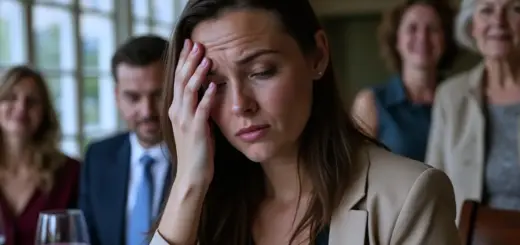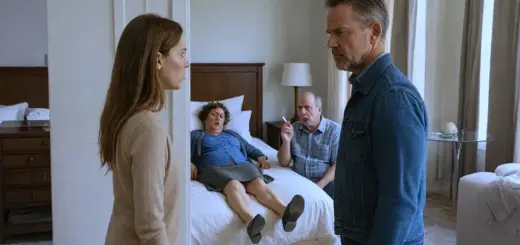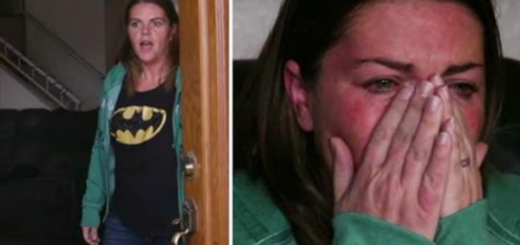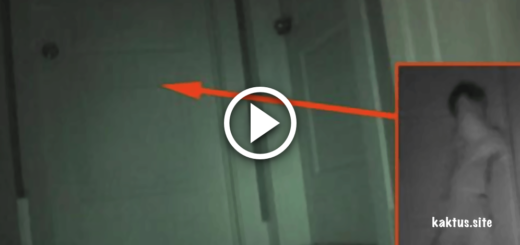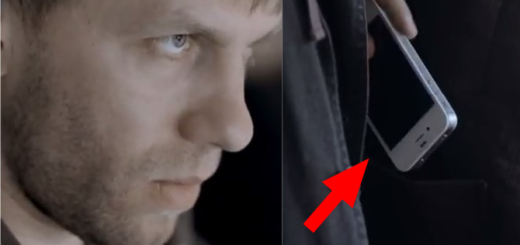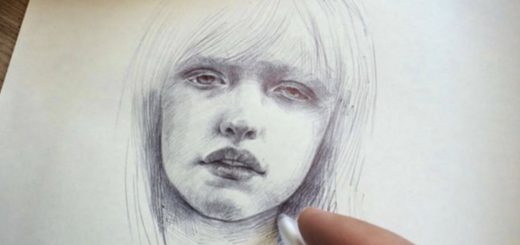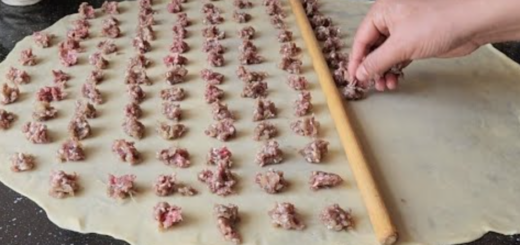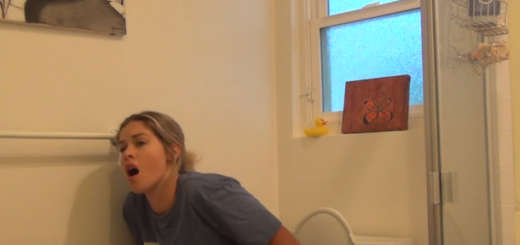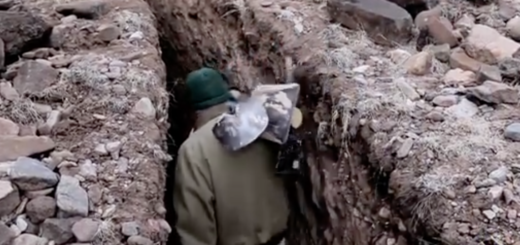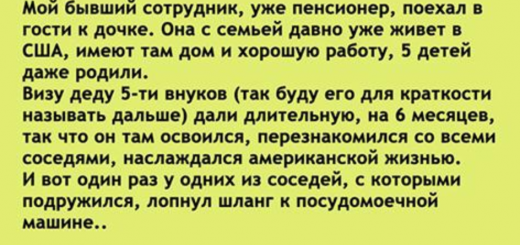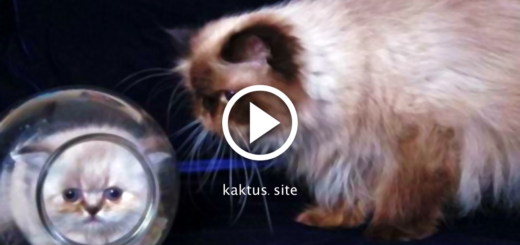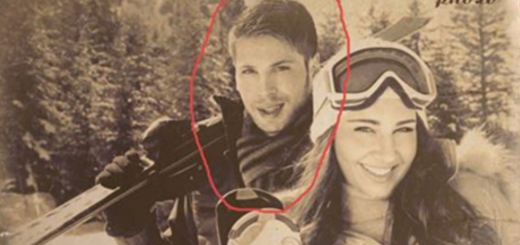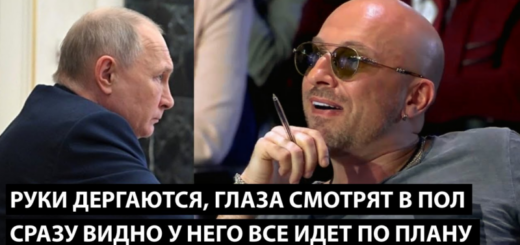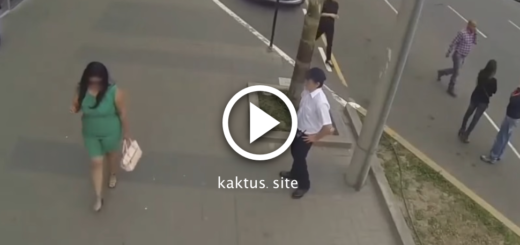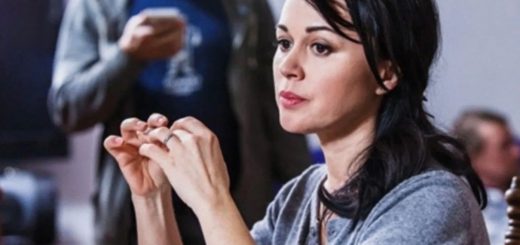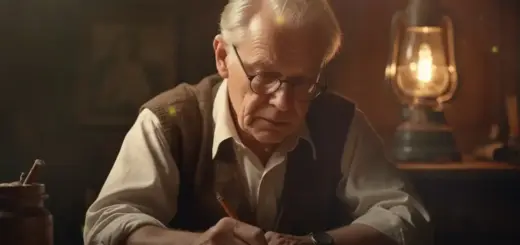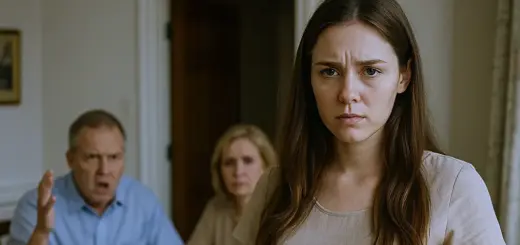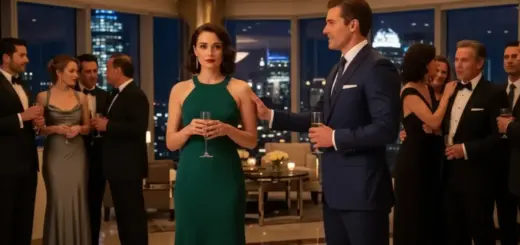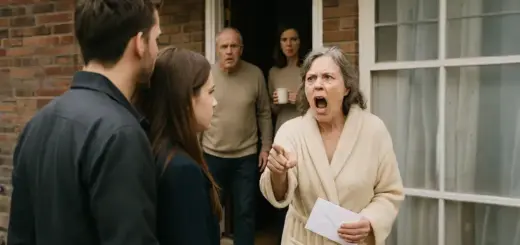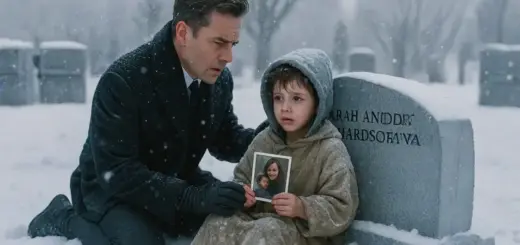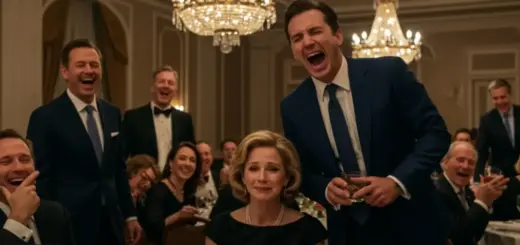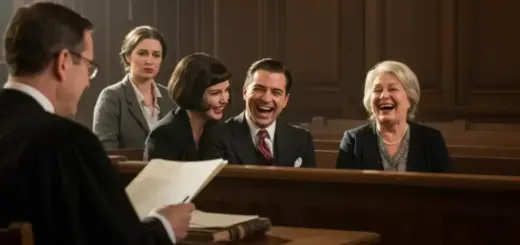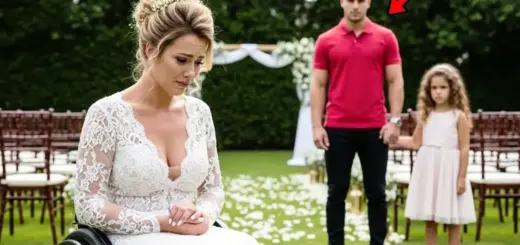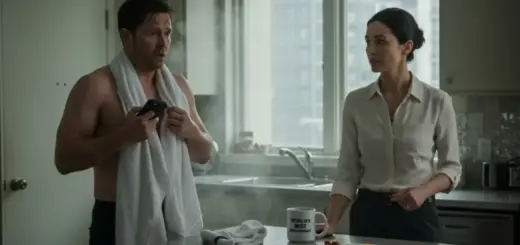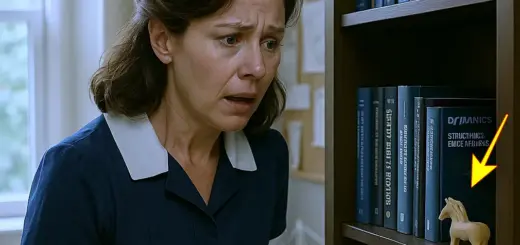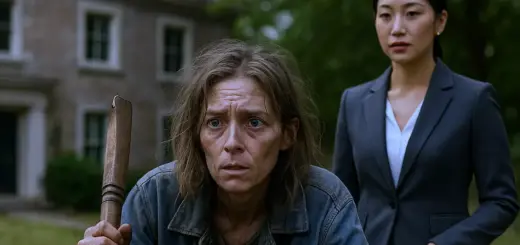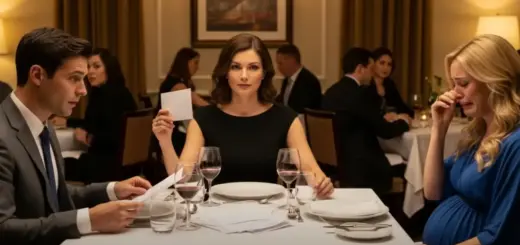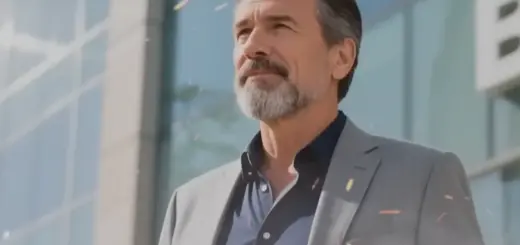The vote to make Jacob co-CEO passed unanimously. As the meeting ended, Patricia pulled me aside. «Theodore left you one more thing.» She handed me a small velvet box. «Instructions were to give it to you after you passed the acquisition test.»
Inside was a ring, a simple band with architectural blueprints etched into the metal, and a note in Theodore’s handwriting. «Sophia, if you’re reading this, you passed my final test. This ring belonged to my wife, your great-aunt Eleanor, whom you never met. She was an architect, too, one of the first women to practice in the 1950s. She faced barriers you can’t imagine, but she never compromised her vision. When she died, I promised I’d give this to someone worthy of her legacy. That someone is you. Build bravely, live boldly, and never let anyone make you small again. I’m proud of you. T.»
I slipped the ring on my finger, and it fit perfectly. Of course it did. Theodore had planned everything. That evening, Jacob found me in the studio, looking out at Manhattan with Eleanor’s ring catching the light. «Penny for your thoughts?»
«Theodore orchestrated everything. The inheritance, the board challenges, the acquisition offer. He mapped out tests to prove I was who he believed I could be.» «Are you angry?»
«No. I’m grateful. He didn’t just give me a company; he gave me challenges that forced me to become the architect, the leader, the person I was always meant to be. Without those tests, I might have doubted myself forever.» Jacob wrapped his arms around me from behind. «You know what I think? Theodore knew you’d pass every test because you already had something Marcus Chen and people like Richard will never understand.»
«What’s that?» «The ability to value people over profit. To see potential in problems. To build up instead of tear down. That’s why I fell in love with you. Not because you’re Theodore’s heir, but because you see the world as a place worth improving.»
«I love you too. You’ve been my partner through all of this.» «Speaking of partnership,» Jacob said, his voice suddenly nervous. He pulled a small box from his pocket and opened it. Inside was a ring, simple and elegant, with a small diamond catching the light.
«Sophia Hartfield. I’m not doing this because of any test or timeline. I’m doing this because every day with you is better than the day before. And I want a lifetime of days watching you change the world. Will you marry me?» I looked at the ring, then at Jacob, then at the studio around us that Theodore had built hoping I’d return. A year ago, I’d been married to someone who’d wanted to diminish me. Now I was being proposed to by someone who celebrated me.
«Yes,» I said, tears streaming down my face. «Yes, absolutely yes.» He slipped the ring on beside Eleanor’s, and they looked perfect together—old legacy and new beginning. «Should we tell people tonight?»
«Actually,» Jacob said, pulling out his phone with a grin, «I already asked Margaret to prepare champagne. She’s been hoping for this since you moved in.» We went downstairs to find Margaret beaming, a bottle of champagne chilling. «It’s about time. Mr. Theodore would be so happy.»
«He probably planned this too,» I said, laughing through my tears. «Probably has a letter about how Jacob was perfect for me.» «Actually,» Margaret said, heading to Theodore’s study, «he does.»
She returned with an envelope addressed to both of us, dated the week before Theodore died. «Jacob and Sophia, if you’re reading this together, my plan worked better than I’d hoped. Jacob, you’ve been like a son. Sophia, you’ve always been like a daughter. I couldn’t imagine better leaders for my company or better partners for each other. Build something beautiful together. And please, don’t name any children Theodore. That name dies with me. All my love, T.» We laughed and cried, toasting a man who’d believed in us when we didn’t believe in ourselves.
The engagement announcement made waves in the architecture community. Architectural Digest wanted an exclusive. Design magazines wanted photos. Even Theodore’s old rivals sent surprisingly kind congratulations. But the biggest response came from Richard. Because of course it did. Victoria called me on a Friday morning in November, her voice tight with controlled anger. «Richard filed a lawsuit. He’s claiming you used marital assets to invest in Hartfield Architecture. That he’s entitled to a portion of your inheritance.»
I laughed. «I was broke when we divorced. He took everything. How could I have invested anything?» «He’s arguing that your architectural knowledge, acquired during your marriage while he supported you financially, constitutes a marital asset that contributed to your current success. It’s absurd, but it’s designed to be disruptive and expensive to fight.»
Jacob, listening on speaker, looked furious. «He’s doing this because she’s engaged. This is spite, not legal merit.» «Exactly. Which is why we’re going to destroy him. Sophia, I need evidence from your marriage that shows Richard actively prevented you from working. Emails, texts, anything where he discouraged your career.»
I thought about those 10 years. «I kept journals. Nothing I showed him, but I documented things. His comments about my degree, times he sabotaged job opportunities, ways he isolated me.» «Perfect. Get them to me today. We’re filing a countersuit for emotional distress, defamation, and harassment. Richard’s about to learn that targeting you was the worst decision he’s ever made.»
Finding the journals was harder than expected. They’d been in storage, in boxes I hadn’t opened since moving to Manhattan. Jacob came with me. As we sorted through boxes, I found the journals buried beneath old textbooks. «Listen to this,» I said, reading from an entry five years into my marriage. «Richard told his colleague at dinner that my architecture degree was a ‘hobby.’ Cute but useless. When I tried to correct him, he laughed and said I was too sensitive. Later, he told me I’d embarrassed him. I apologized. God, Jacob, I apologized for existing.»
Jacob’s jaw was tight. «He systematically destroyed your confidence.» «He tried to. But he didn’t succeed. I’m still here. And he’s the one filing frivolous lawsuits.»
The journals painted a devastating picture: ten years of emotional manipulation documented in my own handwriting. Richard criticizing my appearance, my intelligence, my dreams. Richard losing my license exam registration. Richard scheduling trips during interviews I’d arranged. Richard telling me repeatedly that nobody else would ever love me. Victoria reviewed the documents with grim satisfaction. «This isn’t just evidence. This is a roadmap of abuse. Richard’s lawsuit is going to backfire spectacularly.»
The countersuit was filed within a week, and Richard’s legal team immediately tried to settle. They offered to drop his lawsuit if we dropped ours. «Absolutely not,» I told Victoria. «He came after me when I was finally happy. He tried to undermine my engagement, my success, my peace. He doesn’t get to walk away without consequences.»
«You understand this will be public. Divorce records, allegations of abuse—all of it will be in the court documents.» «Good. Let people see who he really is. I’m done protecting his reputation at the cost of my own truth.»
The preliminary hearing was scheduled for December. I walked into that courtroom with Jacob beside me, Margaret behind us, and the absolute certainty that I was doing the right thing. Richard was already seated with his lawyers, looking confident. That confidence evaporated when the judge reviewed our counterclaims. «Mr. Foster, these allegations are quite serious. Emotional abuse, financial control, deliberate career sabotage. Your attorney indicated this was a simple property dispute.»
Richard’s lawyer stood. «Your Honor, these accusations are exaggerated. My client supported Ms. Hartfield financially throughout their marriage.» Victoria rose smoothly. «Supported her or imprisoned her, Your Honor? We have extensive documentation showing Mr. Foster systematically prevented Ms. Hartfield from pursuing her career. He discouraged employment, sabotaged applications, and used financial control to maintain dominance. This wasn’t support; this was abuse designed to keep her dependent.» She presented the journals, email evidence, and testimony from our marriage counselor. By the time she finished, Richard looked pale and small.
The judge was not sympathetic. «Mr. Foster, these documents suggest your lawsuit is retaliatory rather than substantive. Ms. Hartfield received her inheritance after your divorce was finalized. You have no legal claim. Moreover, claiming her education as marital property when you actively prevented her from using it professionally is both legally frivolous and morally questionable.» Richard’s lawyer tried to argue, but the judge cut him off. «Motion dismissed with prejudice. Mr. Foster, you are fortunate Ms. Hartfield isn’t pursuing criminal harassment charges. I suggest you consider this outcome a gift and move on with your life.»
Outside the courthouse, reporters were waiting. I’d expected this. «Ms. Hartfield, how do you feel about the judge’s ruling?» «Vindicated. My ex-husband spent 10 years trying to make me believe I was worthless. He took everything in our divorce, and when I rebuilt my life, he tried to take that too. Today, a judge confirmed what I already knew: Richard Foster is a small man who can’t handle strong women. I’m done giving him any power over my narrative.»
«Will you pursue further legal action?» «No. He’s not worth my time or energy. I have buildings to design, a company to run, and a wedding to plan. Richard is irrelevant to my future. And honestly, he always was.»
The clip went viral. By that evening, other women had come forward with stories about Richard, patterns of controlling behavior. His business started losing clients. His reputation crumbled, not because of anything I’d actively done, but because of who he’d always been, finally exposed. Jacob found me that night on the estate’s rooftop, looking at the city lights. «How are you really feeling?»
«Free. Finally, completely free. He can’t touch me anymore. His opinion doesn’t matter. His existence doesn’t affect my happiness.» «Theodore would be proud. You turned your pain into power.»
«That was always his plan. Every test, every challenge, building toward this. Toward me understanding that I’m not defined by who tried to break me, but by how I rebuilt myself.» «So what’s next? You’ve conquered your demons, grown the company, and started a revolution. What does Sophia Hartfield do for an encore?»
I smiled, pulling out a sketch I’d been working on. «I want to use the $30 million from Theodore’s final trust for something ambitious. A nationwide public architecture initiative. Libraries, community centers, public spaces designed with the same care usually reserved for luxury projects. Architecture that serves everyone.» Jacob studied the sketches. «A nationwide initiative. That’s ambitious.»
«Theodore always said the best architecture should be democratic. That beauty and innovation shouldn’t be luxuries. This is how I honor his memory while making my own mark.» «Our own mark,» Jacob corrected. «Partners, remember?»
I kissed him, tasting happy tears. «Partners. In everything.»
The wedding happened in April, exactly 18 months after I’d climbed out of that dumpster. We kept it relatively small, about 100 people, held in the estate’s rooftop garden that Theodore had designed decades ago. Emma was my maid of honor, having graduated from the fellowship and joined Hartfield full-time. She’d cried when I asked her. «You changed my life. Not just my career, but my entire understanding of what’s possible.»
«You did that yourself. I just opened the door.» Patricia walked me down the aisle, Theodore’s closest friend serving as the family I’d chosen. Margaret sobbed through the ceremony, clutching a handkerchief Theodore had left specifically for this occasion.
Jacob’s vows were simple and perfect. «Sophia, you taught me that partnership means celebrating each other’s strength, not competing with it. You’ve made me a better architect and a better man. I promise to always see you, challenge you, and believe you’re capable of the impossible.»
My vows were harder to get through without crying. «Jacob, 18 months ago, I was convinced nobody would want me, that I was broken. You didn’t just prove that wrong; you made me understand I was never broken. I was just waiting to find someone who saw my cracks as places where light could enter. Thank you for being my partner in every sense and for loving me exactly as I am.»
We danced under string lights, surrounded by people who’d watched me transform. The documentary crew filmed a brief epilogue segment, the final chapter of an award-winning series about architecture, redemption, and second chances. As the evening wound down, Jacob pulled me aside to the studio. On the drafting table was a leather portfolio I didn’t recognize. «Theodore left this with Patricia. Instructions were to give it to us on our wedding day.»
Inside were sketches, dozens of them. Designs Theodore had created but never built: community centers, schools, affordable housing. Social architecture for the people society often overlooked. The note read, «Sophia and Jacob, these are my dreams that I never had time to realize. Now they’re yours. Build them together, boldly, for the people who need proof that someone sees their worth. Architecture isn’t just about creating beautiful spaces; it’s about creating spaces that make beautiful lives possible. I love you both. Now stop reading and go dance with your wife, Jacob.» We laughed through our tears, Theodore’s voice so clear. Then we returned to the party, to the life we were building together.
The Public Architecture Initiative launched the following year. Using Theodore’s final trust and additional funding from Hartfield’s profits, we began designing and building libraries, community centers, and public spaces across the country. Each incorporated sustainable design, local artists, and community input. Architecture as collaboration. Emma led the design for the Philadelphia Community Library, her first project as lead architect. I attended the opening, watching her explain her vision to the press.
«Architecture saved my life,» Emma told reporters. «Not just as a career, but as proof that I could build something meaningful. Sophia Hartfield taught me that buildings are more than structures; they’re promises that better futures are possible.» I found Emma afterward, hugging her tightly. «Theodore would have loved this. He would have loved you.»
«I know. Because you loved me enough for both of you. Thank you for seeing potential when I couldn’t.»
Hartfield Architecture grew steadily over the next few years, not chasing prestige, but pursuing projects that aligned with our values. We designed schools in underserved communities, affordable housing that didn’t sacrifice beauty, and public spaces that brought people together. We won awards, but more importantly, we changed lives.
Richard faded into obscurity. His business failed, his reputation destroyed by his own actions and the multiple women who came forward with similar stories. I heard about it through former acquaintances and felt nothing. No satisfaction, no vindication, just complete indifference. He’d become what he’d always been: irrelevant.
Five years after taking over Hartfield, I was invited to give the commencement address at my architecture school. I stood at the podium, looking at graduates who reminded me of the person I’d been once. «When I graduated, I had a degree, a dream, and absolute certainty about my future. Within a week, I’d abandoned all of it for a man who needed me to be small. For ten years, I disappeared into a life that wasn’t mine. But here’s what I learned: you can’t actually lose yourself. You can misplace yourself temporarily, but your essential self remains, waiting for you to remember.»
«When I finally escaped that marriage, I had nothing. No money, no home, no confidence. But I had my education, my passion, and a great-uncle who believed I was worth waiting for. Some of you will take straightforward paths. Others will detour through darkness first. Both journeys are valid. What matters is remembering this: you are architects. You see potential in empty spaces. You understand that foundations must be strong before buildings can rise. Apply that same vision to your own lives. Build yourself carefully, honestly, and courageously. And when life tries to tear you down, remember that you’re trained to reconstruct from ruins.» The applause was thunderous. But what mattered more were the students who approached me afterward, sharing their own stories, thanking me for being honest.
If this story resonated with you, make sure to like and subscribe for more stories about transformation, resilience, and the power of refusing to stay small when the world tries to diminish you.
That evening, I returned to the estate where this chapter began. Jacob was in the studio, working on sketches for a Detroit children’s museum. Margaret had dinner waiting. I climbed to the rooftop garden where Theodore had imagined my homecoming. The city stretched out below, full of buildings designed by people with dreams and determination. I thought about the woman who’d climbed out of that dumpster five years ago, believing she’d lost everything.
I wished I could tell her what was coming. But more than that, I wished I could tell her the most important thing: she was already everything she needed to be. She just needed time and space to remember it. My phone buzzed. It was Emma. «Just landed the commission for the San Francisco Community Center. Your blueprint is changing the country. Thank you for believing in me.»


